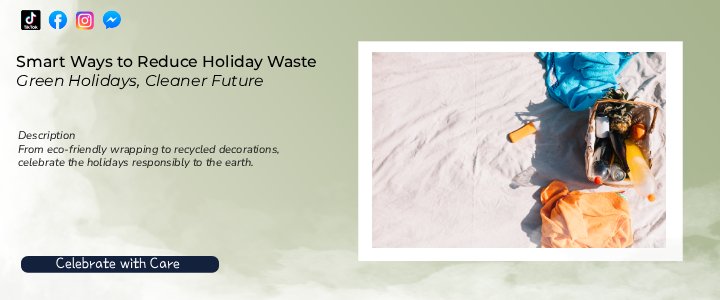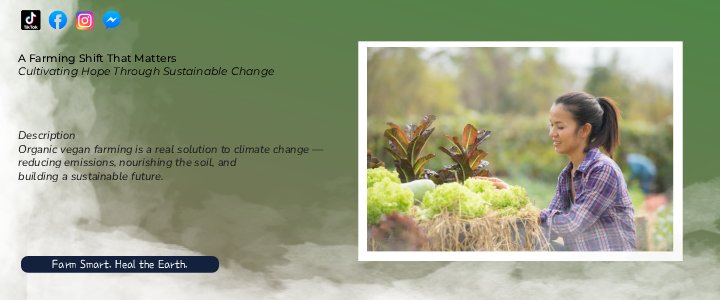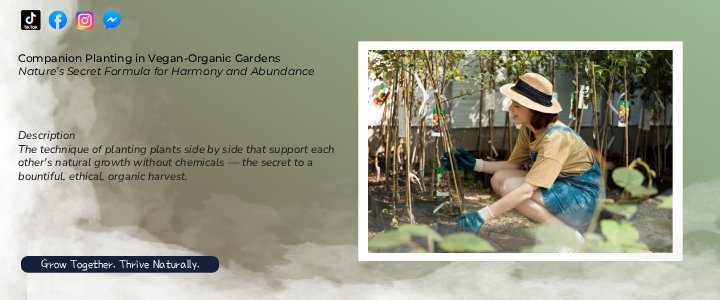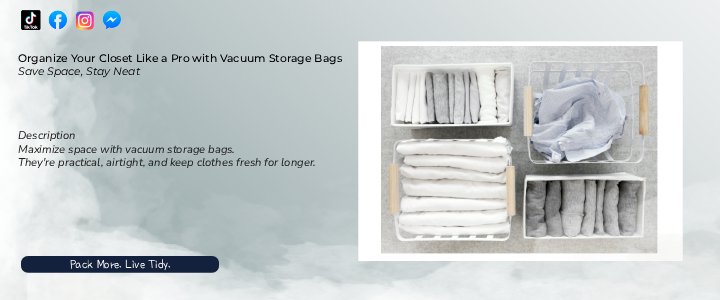Reduce Holiday Waste
The holidays are a time for joy, family gatherings, and festive decorations — but they also bring something less cheerful: holiday waste. From piles of used wrapping paper to disposable decorations and mountains of leftover food, the festive season often leaves behind a significant environmental footprint.
In fact, studies show that household waste increases by up to 25% during the holiday season. But with a little awareness and creativity, it’s possible to celebrate sustainably without giving up the fun and sparkle of the holidays. Let’s explore practical ways to manage holiday waste and make your celebrations more eco-friendly.
The Biggest Sources of Holiday Waste
Before we can fix the problem, we need to understand where most holiday waste comes from. Typically, it’s caused by three main culprits:
| Source of Waste | Common Examples | Sustainable Alternatives |
|---|---|---|
| Gift Packaging | Wrapping paper, ribbons, plastic bows | Use recyclable paper, reusable gift bags, or fabric wraps (like furoshiki) |
| Decorations | Plastic ornaments, single-use tinsel, disposable tableware | Choose durable or natural décor like wood, fabric, or paper-based ornaments |
| Food Waste | Leftovers, spoiled food, disposable containers | Plan meals carefully, share extra food, compost organic waste |
Each of these waste types can be reduced with a few mindful choices, helping you enjoy a cleaner and more sustainable holiday season.
Eco-Friendly Gift Ideas and Wrapping Tips
One of the easiest ways to reduce holiday waste is by rethinking the way we give and wrap gifts. Instead of buying items that will soon end up in the trash, consider meaningful and eco-conscious alternatives.
Here are some simple yet impactful ideas:
- Gift experiences, not stuff. Give concert tickets, online subscriptions, or charity donations.
- Support local artisans. Buy handmade or locally sourced items to reduce shipping waste.
- Reuse and recycle wrapping materials. Save gift bags, ribbons, and boxes for future use.
- Use eco-friendly wrapping. Brown paper tied with twine looks beautiful and is fully recyclable.
- Try DIY options. Wrap gifts with newspaper, fabric scraps, or reusable totes.
A little creativity can go a long way — not only reducing holiday waste but also making your gifts stand out with a personal touch.
Managing Food Waste During the Holidays
Food waste is another major contributor to holiday waste. While big feasts are part of the joy of the season, over-preparing often leads to leftovers that end up in the trash.
Here’s how you can enjoy your meals without wasting food:
- Plan your menu wisely. Cook based on the number of guests — not your shopping impulse.
- Get creative with leftovers. Turn roast turkey into sandwiches, soups, or casseroles.
- Store food properly. Use airtight containers or freeze portions for later.
- Share the surplus. Offer extra food to neighbors or local shelters.
- Compost the rest. Food scraps can become rich soil for your plants instead of landfill waste.
By planning ahead, you’ll not only reduce holiday waste but also save money and make your meals go further.
Simple Everyday Actions for a Greener Holiday
Even small actions can make a big difference when multiplied across millions of households. Here are a few more easy ways to celebrate responsibly:
- Switch to LED lights for your holiday decorations — they use up to 80% less energy.
- Avoid single-use plastics like disposable cups or plates during gatherings.
- Buy in bulk to minimize packaging waste.
- Donate unused gifts instead of letting them collect dust.
- Recycle properly by separating paper, plastics, and glass after the festivities.
Making eco-friendly choices doesn’t mean losing the magic of the season it simply means celebrating it more mindfully.
Conclusion
The joy of the holidays shouldn’t come at the cost of our planet. By taking simple, practical steps to manage holiday waste, we can all contribute to a cleaner, greener, and more sustainable future.
This year, let’s wrap our gifts with care, plan our meals smartly, and celebrate responsibly. Because the best gift we can give to ourselves and future generations is a healthier Earth



